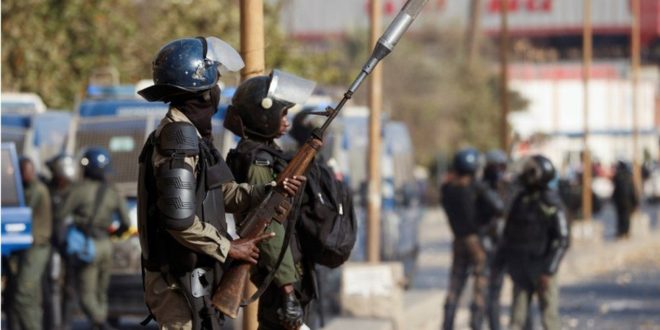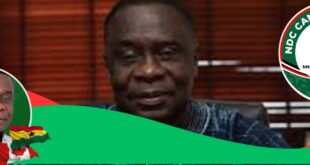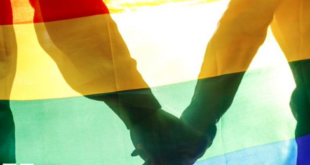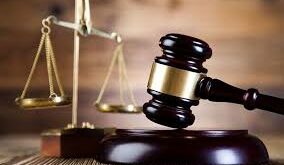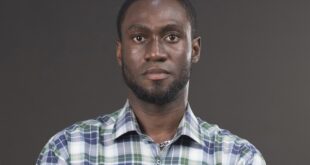Large protests have hit Senegal for a third day as demonstrators burnt cars and clashed with police after the arrest of an opposition leader on Wednesday.
Ousmane Sonko appeared in court on Friday accused of disrupting public order. He also faces a rape allegation.
He denies the allegations and his supporters say the accusations are politically motivated.
At least one person has died in the rare nationwide unrest.
Senegal is one of West Africa’s most stable countries.
On Friday police fired tear gas at Mr Sonko’s supporters in the capital Dakar where some shops and schools closed during the protests.
Police also blocked motorbikes and mopeds, which are popular among Mr Sonko’s young supporters, from the city’s streets.
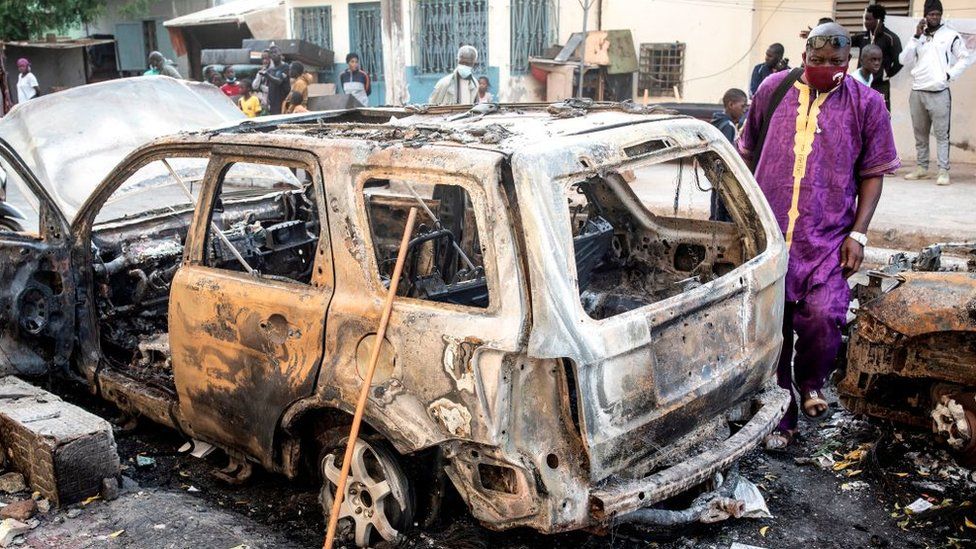 IMAGE COPYRIGHTAFP
IMAGE COPYRIGHTAFPDemonstrators have gathered in the city’s surrounding areas and in the southern city of Bignona, a stronghold of Mr Sonko.
Two private TV channels that covered the protests have been suspended for 72 hours by the government.
On Thursday Internet monitor NetBlocks said access to social media and messaging apps was restricted.
Senegal’s government has condemned the protests as a “flagrant violation” of the state of emergency put in place to tackle coronavirus.
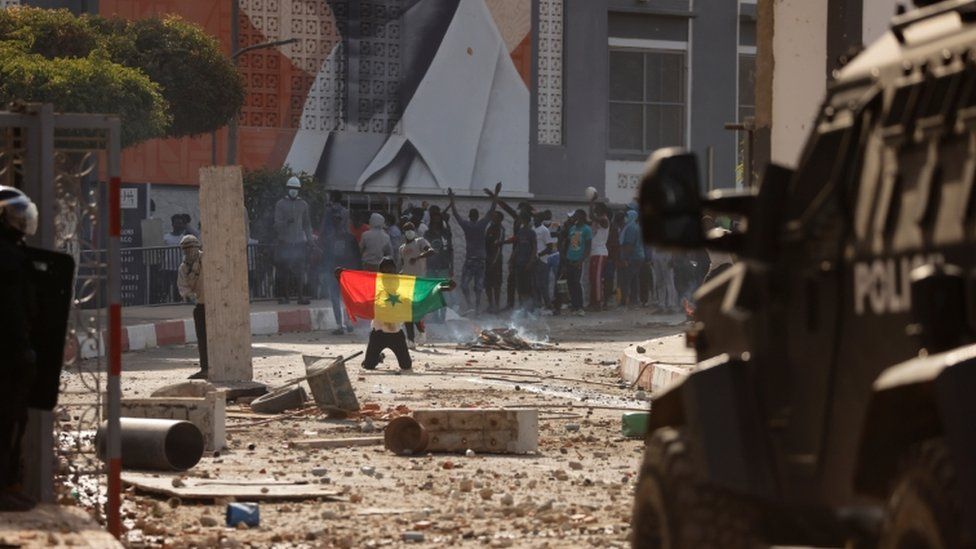 IMAGE COPYRIGHTREUTERS
IMAGE COPYRIGHTREUTERSThe United Nations’ special envoy for West Africa Mohamed Ibn Chambas has appealed for calm.
Mr Sonko, 46, was accused of rape in February by a woman who worked in a beauty salon.
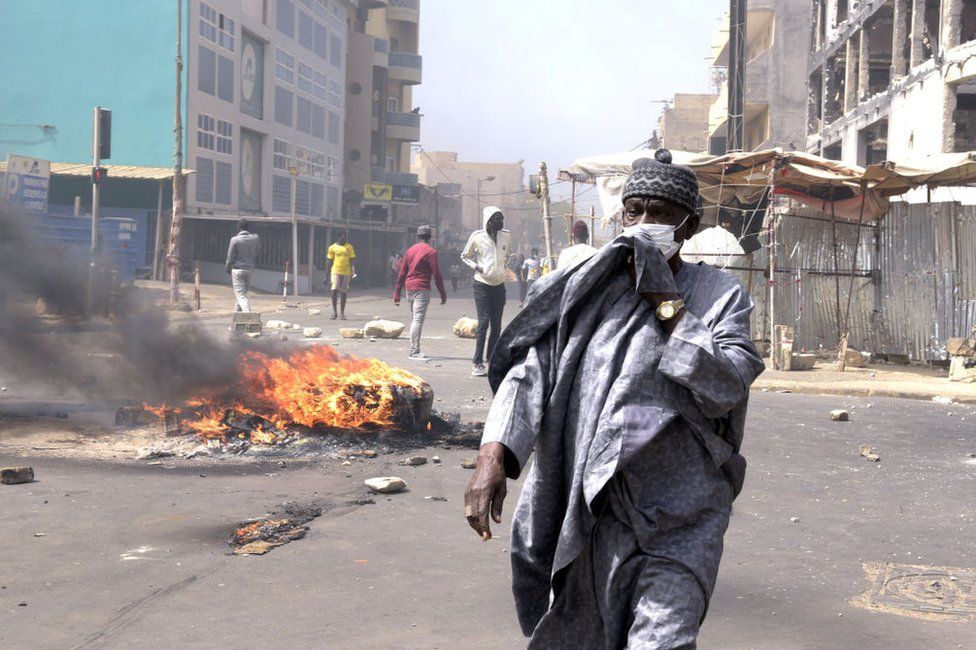 IMAGE COPYRIGHTAFP
IMAGE COPYRIGHTAFPFollowing an investigation he was arrested on Wednesday and taken to court accompanied by a group of supporters.
Police said they then arrested him for disrupting public order when he refused to change his route to the court.
Mr Sonko says the allegations of rape are fabricated. He accuses Senegal’s President Macky Sall of trying to remove potential opponents ahead of the 2024 election. Two other opposition leaders were excluded from the 2019 election after being convicted on charges which they say were politically motivated.
There are reports that Mr Sall may seek to change the constitution to allow him to run for a third term.
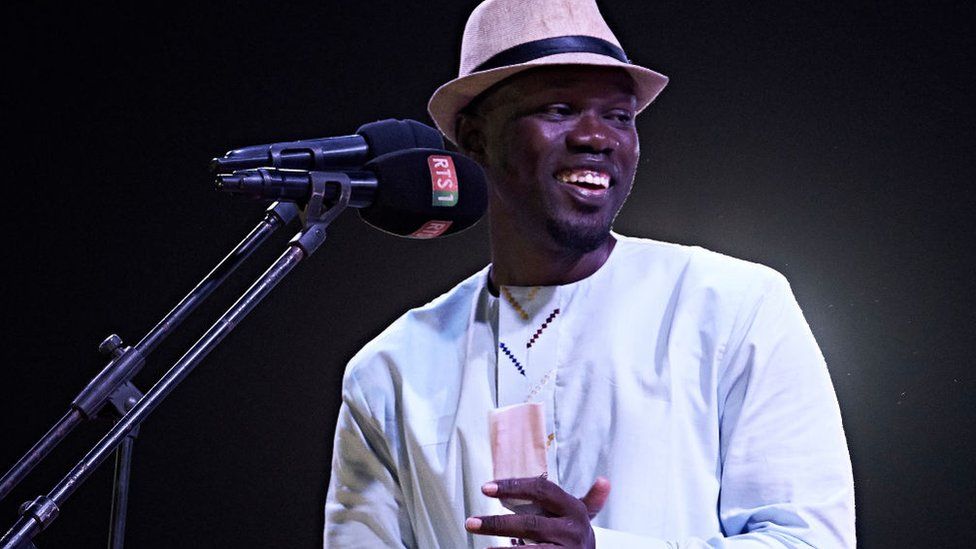 IMAGE COPYRIGHTAFP
IMAGE COPYRIGHTAFPMr Sonko is the president’s only remaining serious challenger, BBC Afrique’s Ndèye Khady Lo in Dakar says.
She explains that the opposition politician is particularly popular with young Senegalese for his promise of radical opposition to what he calls “the system”.
In 2014 he founded his own political party, Nastef, and came third in the 2019 presidential election with 15% of the vote.
In a video recorded and shared on social media in 2018, Mr Sonko told activists: “There is enormous potential in this country. It is unacceptable to see suffering of our people” adding “our politicians are criminals. Those who have ruled Senegal from the beginning deserve to be shot.”
BBC.COM
 Home Of Ghana News Ghana News, Entertainment And More
Home Of Ghana News Ghana News, Entertainment And More
